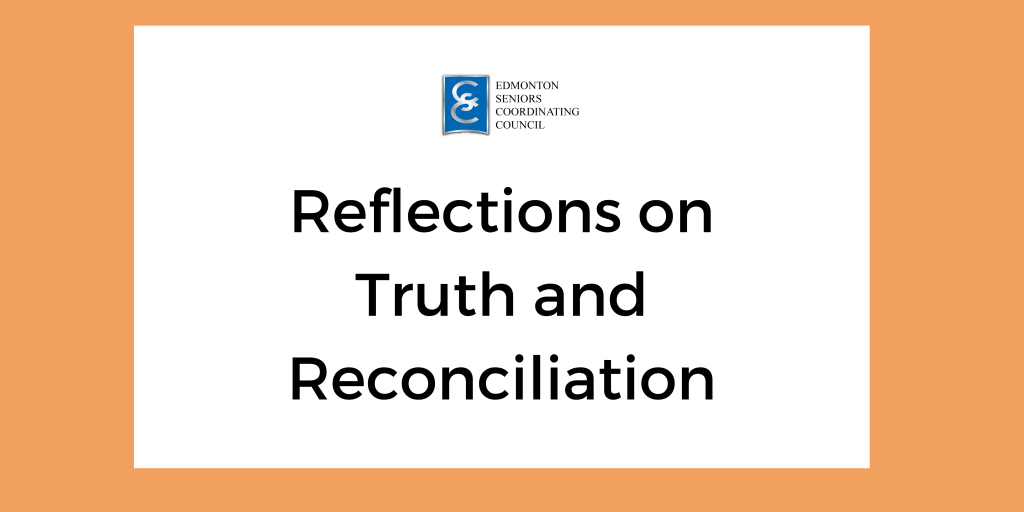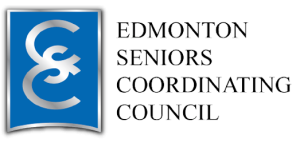Reflections on Truth and Reconciliation

In September’s Link Letter issue, the staff at ESCC wanted to commemorate the upcoming National Day for Truth and Reconciliation, September 30, 2023, by examining the Truth and Reconciliation Commission’s 94 Calls to Action and reflect on how ESCC could provide support to these policy recommendations and integrate into action.
We found #13, #19, #20, #57, #80 and, #92 to be actions that ESCC could support. Below we have listed the actions and then our thoughts on how we have or how we can commit to action.
On September 30, 2023, ESCC encourages its Board of Directors, staff members and Link Letter subscribers to reflect on or participate in a meaningful way in an activity to acknowledge National Truth and Reconciliation Day.
#13: We call upon the federal government to acknowledge that Aboriginal rights include Aboriginal language rights.
In June 2017 the federal government, in a joint statement with Indigenous leaders, confirmed that Aboriginal rights include Aboriginal language rights. As ESCC supports coordinated service models and can advocate for resources for translation and culturally responsive service delivery we can be mindful of this call to action and support coordinated service model responsiveness to older Indigenous adults needs when they do not speak English.
#19: We call upon the federal government, in consultation with Aboriginal peoples, to establish measurable goals to identify and close the gaps in health outcomes between Aboriginal and non-Aboriginal communities, and to publish annual progress reports and assess long-term trends. Such efforts would focus on indicators such as: infant mortality, maternal health, suicide, mental health, addictions, life expectancy, birth rates, infant and child health issues, chronic disease, illness and injury incidence, and the availability of appropriate health services.
ESCC oversees the training of workers and the evaluation of coordinated services and we can draw attention to the gaps in health outcomes in reports and stories and where possible include some indicators in our evaluation and report on progress.
#20: In order to address the jurisdictional disputes concerning Aboriginal people who do not reside on reserves, we call upon the federal government to recognize, respect, and address the distinct health needs of the Métis, Inuit, and off-reserve Aboriginal peoples.
ESCC can attempt to draw attention to the distinct needs of the Metis, Inuit and off-reserve Aboriginal peoples in collaborative training of workers and where possible, track progress related to coordinated services and response to distinct needs.
#57: We call upon federal, provincial, territorial and municipal governments to provide education to public servants on the history of Aboriginal peoples, including the history and legacy of residential schools, the United Nations Declaration on the Rights of Indigenous Peoples, Treaties and Aboriginal rights, Indigenous law, and Aboriginal-Crown relations. This will require skills-based training in intercultural competency, conflict resolution, human rights and anti-racism.
ESCC can support the inclusion skills-based training in intercultural competency, conflict resolution, human rights and anti-racism in coordinated services training programs.
#80: We call upon the federal government, in collaboration with Aboriginal Peoples, to establish, as a statutory holiday, a National Day for Truth and Reconciliation to honour Survivors, their families and communities, and ensure that public commemoration of the history and legacy of residential schools remains a vital component of the reconciliation process.
This action was completed in June 2021, ESCC can encourage staff professional development related to truth and reconciliation as part of our efforts to commemorate this day annually and develop an operational policy accordingly.
#92: We call upon the corporate sector in Canada to adopt the United Nations Declaration on the Rights of Indigenous Peoples as a reconciliation framework and to apply its principles, norms, and standards to corporate policy and core operational activities involving Indigenous peoples and their lands and resources. This would include, but not be limited to, the following:
Commit to meaningful consultation, building respectful relationships, and obtaining the free, prior, and informed consent of Indigenous peoples before proceeding with economic development projects.
Ensure that Aboriginal peoples have equitable access to jobs, training, and education opportunities in the corporate sector, and that Aboriginal communities gain long-term sustainable benefits from economic development projects.
Provide education for management and staff on the history of Aboriginal peoples, including the history and legacy of residential schools, the United Nations Declaration on the Rights of Indigenous Peoples, Treaties and Aboriginal rights, Indigenous law, and Aboriginal-Crown relations. This will require skills based training in intercultural competency, conflict resolution, human rights, and anti-racism.
In 2022, the ESCC Board of Directors and staff registered for 4 Seasons of Reconciliation, an online course on Truth and Reconciliation. We worked through the modules together, had thoughtful and difficult discussions, and all earned a Certificate of Completion from First Nations University of Canada.
Completing the 4 Seasons of Reconciliation course together has had a profound impact on our organization. We often reference something we learned in the modules in other discussions, wonder if we are doing enough, and ask ourselves what else we can do. We realized the importance for new board and staff members joining ESCC to take the 4 Seasons course as part of regular orientation and have made a financial commitment to provide this training. Through our shared learning experience, we understand that much of the course content is difficult to learn and we are committed to supporting new board and staff members on their learning journey.



